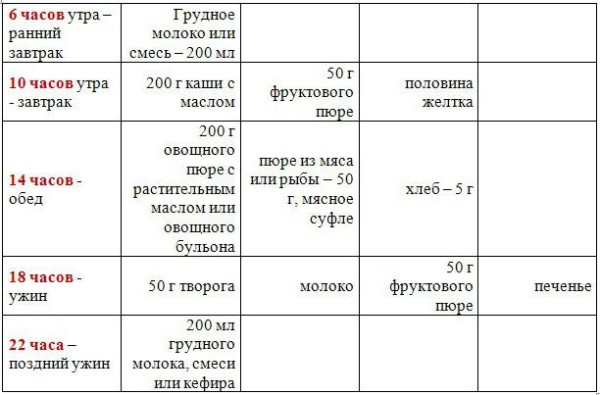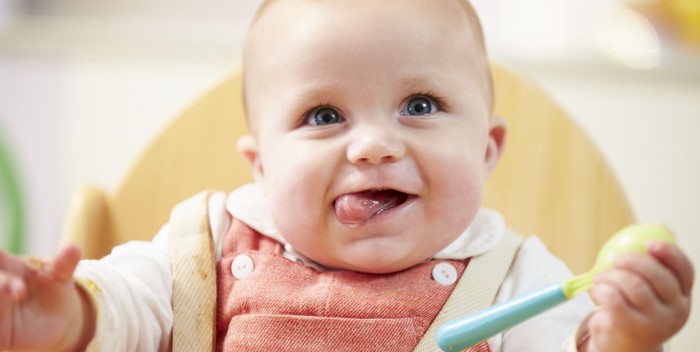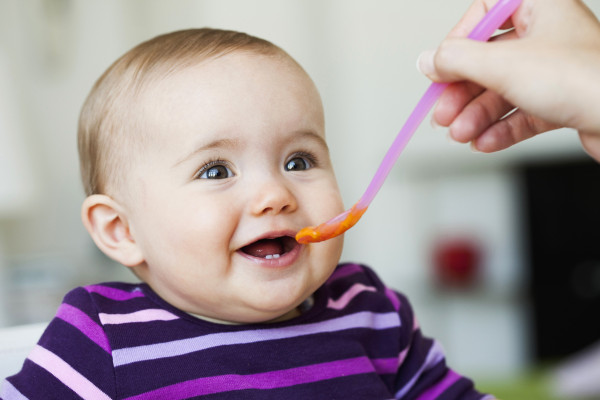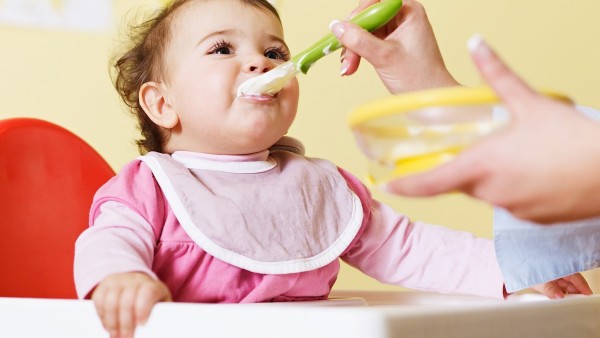Baby food at 8 months
The baby is growing, he is already eight months old. A child at this age becomes more active. The usual diet no longer satisfies the nutritional needs of the crumbs. It is necessary to expand the menu and let the child try new dishes.
Content
What can a baby eat at 8 months
An older eight-month-old baby, regardless of type nutrition you need to give porridge. For this age, porridge made from rice, buckwheat, corn, oatmeal and barley are suitable. Millet porridge should not be given yet, it is too rough for the baby's digestive tract.
It is useful for the health of the crumbs at this age to give him broths on vegetables. At the age of eight months, babies eat hard-boiled egg yolk. If the baby is not yet accustomed to it, then it's time to give him a try this product. The yolk can be included in the diet once a week.
All new foods should be given to the child gradually, starting in small portions and gradually increasing in volume. In doing so, it is important to act consistently. You cannot teach your baby to two or more foods at the same time.
Eight months of age is a good time for a baby to get acquainted with fruit. The body of the crumbs is quite strong and the likelihood of developing allergies is minimal. It is also the most recommended age to give your baby berries.
An eight-month-old baby should be given fish. It contains many components that help the development of bone tissue and the proper functioning of the heart. Fish is especially recommended to be included in the diet of formula-fed children. There are few vitamins in their menu, besides, with the early introduction of complementary foods, the body of such children is already quite ready to get acquainted with fish. It is imperative to choose sea fish, since river fish are very often infected with helminths.
Not all mothers know this, but babies of eight months of age are allowed to be given bread. It should be a small piece that serves as a snack for the child and teaches him to chew. This is also the best time to introduce diet crumbs of milk. Initially, it needs to be diluted in half with boiled water.
Menu for a baby at 8 months
For the health of the baby, it is necessary to strictly adhere to the diet. Feeding should be done every day at approximately the same time. You can have small snacks between your main meals. If the baby is hungry all the time, then it makes sense to increase the amount of servings. As a snack, you can use a baby cookie, a piece of fruit or a crouton.
- The baby's breakfast should be from 6.00 to 7.00 in the morning, it should consist of breast milk or a portion of baby food.
- From 10.00 to 11.00, the baby receives a portion of porridge, boiled in water or milk. At the same time, you can give him some chicken yolk.
- For lunch, which should be from 14.00 to 15.00, the baby is given soup on meat broth or meat or vegetable puree and broth separately.
- The baby's dinner should take place from 18.00 to 19.00, for which he receives some kind of dairy product and fruit puree.
- At night, the baby is given a portion of baby food or breast milk. This should be from 22.00 to 22.30 hours.
This feeding schedule is optional, as all babies are different. The wakefulness and sleep patterns of babies are also not the same, so feeding times may vary.
In case of illness or at a time when the baby's teeth are teething, he usually becomes moody and often refuses regular food, preferring breast milk. Such nutrition, like the sucking process itself, soothes the baby and makes him feel protected. After you feel better, the feeding regimen is returned to normal.
How much should a baby eat at 8 months
In general, an eight-month-old baby should eat about 1 liter of food by volume throughout the day. However, this calculation does not include water. Since a baby of this age eats five times a day, it is easy to calculate that a baby should receive about 200 grams of food for one feeding.
For more information on nutrition for an eight-month-old baby, see the following table. It takes into account that the child is already familiar with complementary foods, although he continues to receive breast milk or baby food. 




